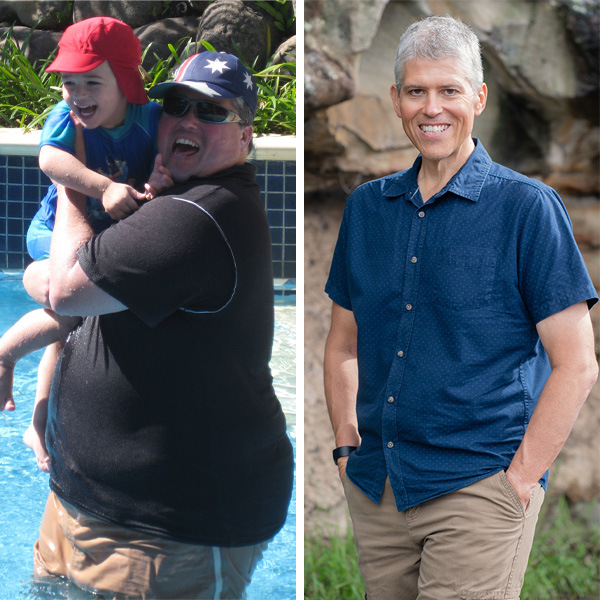All Categories
Featured
Table of Contents
-1
Throughout the Atlantic, nevertheless, I came across a various nutritional factor of sight. When you look at exactly how they consume, rather than what they consume, there's no mystery at all.

-1
They are mindful of the food they eat and do not treat or consume on the run. We North Americans, on the other hand, are made use of to gigantic parts and see the act of consuming as something to be performed as successfully as possible, whether at our desks, on the metro or in front of the tv.
-1in the 1950s. While the food he cooks nowadays has actually been Americanized somewhat, his viewpoint on consuming stays French. "I always consume with pleasure and no shame," he discussed. Ppin has never ever dieted in his life. "If I overdo it, I'll cut down for a day or twobut I consume what I would generally consume.
Weight Loss Surgery ([:suburb])
-1As we sat down and ate with each other, Ppin had little sections of every little thing however avoided secs. If he had an item of Comt cheese, it was a morsel. "If you eat slower and consume much better, taking the time to taste what you put in your mouth, you eat much less and appreciate it much more.
-1"I'll never neglect the initial time my mom, that liked roast beef, came over to see. Delicious food in moderate quantities is what Ppin is convinced assists with weight control and general wellness.
Non-surgical Weight Loss – [:uarea]
![Weight Loss Programs – [:suburb]](https://media.post.rvohealth.io/wp-content/uploads/2020/09/eggs-breakfast-avocado-732x549-thumbnail.jpg)
-1
, causing a rise in insulin that results in more calories being kept away in fat cells (optifast specials). They are digested so fast that we promptly end up being hungry again and wind up consuming even more than we need.
-1They also lower metabolic rate and trigger calories to be shed a lot more gradually. And they hinder self-discipline without us also realizing it. When I had almost concluded that the majority of weight-loss plans were futileat the very least for meI found that somehow countless Americans have prospered. The records of their achievements are maintained by the National Weight Control Windows Registry, whose 12,000-plus enrollees have actually shed a minimum of 30 pounds and kept the weight off for approximately 6 years.
-1Some consumed low-fat, some ate low-carb and some consumed usually. Fifty percent took part in organized weight-loss programs, fifty percent did it on their very own.
Personalized Weight Loss Plan
-1I chose to examine the way I have always consumed and tweak that or, if requirement be, hack away at it. That meant removing or substantially decreasing the "common suspects" in my diet regimen.
-1I have whatever the reverse of a wonderful tooth is, so sugar wasn't my problem. On the various other hand, I had plenty of weak points that were maintaining me plump.
-1For similar reasons, pasta ended up being an unusual treat, instead of a weeknight standby. Beans, I found, filled up the pasta gap, and also made rewarding substitutions (with less calories) in dishes that would have once consisted of a piece of meat. I give up alcohol entirely because it was easier for me to abstain than to very carefully monitor what I consumed.
Optifast Specials – [:suburb]
-1Nobody would certainly call me graceful. I'm still significantly a job in progress, yet as surveys of members of the Weight Control Pc registry show, maintaining the extra pounds off becomes more easy in time as the habits needed to preserve your weight come to be automatic. That strikes me as being basically the reverse of requiring self-control.
-1population over the past twenty years. Instead, the behavioral and ecological factors that conspire to generate people to engage in insufficient exercise and eat way too much about their power expenditure should take many of the blame. It is these elements that are the target of weight-management approaches.
-1In the past, behavior approaches were used as stand-alone therapies to merely modify consuming routines and reduce calorie intake. A lot more just recently, these treatments have actually been utilized in mix with low-calorie diets, medical nutrition therapy, nutrition education and learning, workout programs, monitoring, pharmacological representatives, and social support to advertise weight loss, and as a part of maintenance programs.
Weight Loss Diet Programs ([:suburb] [:postcode])
![Weight Loss Centre ([:uarea])](https://wellnessmethods.com/wp-content/uploads/2022/10/Website-Blogs-Banners-7.png)
-1
Individuals are asked to maintain a day-to-day food diary in which they videotape what and just how much they have consumed, when and where the food was taken in, and the context in which the food was consumed (e.g., what else they were doing at the time, what they were really feeling, and that else was there).
-1Self-monitoring of food intake is frequently associated with a relatively instant decrease in food consumption and following weight reduction (Blundell, 2000; Goris et al., 2000). This reduction in food consumption is believed to arise from increased understanding of food intake and/or concern concerning what the dietitian or nutrition specialist will think concerning the client's consuming behavior.
-1The same may hold true of physical activity monitoring, although little research study has actually been carried out in this field. Self-monitoring also supplies a way for specialists and clients to evaluate which techniques are working and just how changes in eating actions or activity are adding to weight-loss (surgical bariatrics). Recent work has recommended that normal self-monitoring of body weight is a useful accessory to therapy programs (Jeffery and French, 1999)
-1In their analysis of data from the National Weight Control Windows Registry, Klem and coworkers (1997) found that fat burning attained with workout, reasonable weight loss, lowered fat usage, and individual behavior adjustments might be kept for lengthy periods of time. This population was self-selected so it does not stand for the experience of the typical individual in a noncombatant population.
Latest Posts
A Better Online Fitness And Nutrition Coach?
What Is The Best Best Dietitian For Weight Loss Program?
Dietitian For Children – Boulder